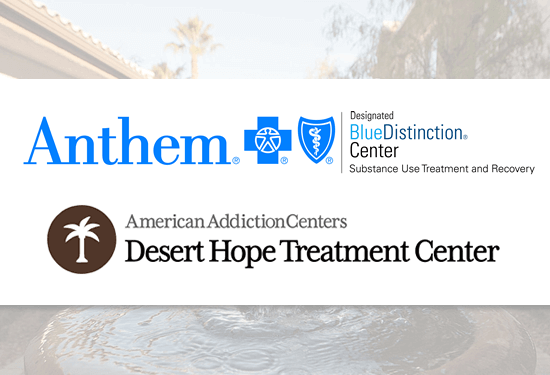Inpatient Addiction Treatment in Nevada
Las Vegas Inpatient Addiction Treatment
At Desert Hope in Las Vegas, we strive to ensure a seamless transition from detoxification to our comprehensive Las Vegas residential substance use treatment program. Once you have completed the detox phase and are feeling more stable, you will move directly into our inpatient rehab program without the need to change facilities. Our Nevada residential treatment offers a structured environment where your days are filled with a variety of therapeutic and supportive activities designed to promote healing and recovery. You will engage in evidence-based therapies, such as individual counseling, group sessions, and holistic practices, all tailored to address your unique recovery needs. Throughout your stay, our dedicated staff will provide you with the support and guidance necessary to help you build the foundation for a lasting recovery, all in the well-equipped and welcoming environment of our Las Vegas inpatient drug rehab center.
What Is Inpatient Rehab?

Inpatient, or residential rehab, is an intensive form of addiction treatment where individuals reside full-time at a dedicated facility, immersing themselves in the recovery process 24 hours a day, 7 days a week. This comprehensive approach offers numerous advantages, particularly the opportunity for patients to benefit from a supportive community of peers who are experiencing similar challenges. The structured environment fosters a sense of safety and security, allowing individuals to focus on their healing without the distractions of daily life. Additionally, these facilities often provide access to a range of resources, including individual and group therapy sessions, medical support, and various holistic practices designed to promote overall well-being. By living on-site, patients can fully engage in their treatment plan while developing essential coping strategies, forming meaningful connections, and laying the foundation for a healthier, addiction-free future.
In Desert Hope’s residential addiction treatment program in Las Vegas, Nevada, you’ll enjoy a hotel-like residence as well as many features and amenities, including:
- Chef-prepared, nutritious meals.
- Indoor and outdoor fitness centers.
- Biofeedback chairs.
- A music room with a grand piano.
- Mindfulness spaces.
How Does Inpatient Addiction Rehab Work?
When you begin your addiction treatment program at our inpatient rehab facility in Las Vegas, NV, you’ll be evaluated by addiction specialists who will outline an individualized rehab program.
Typically, a residential stay starts with a period of medical detox before you transition to the rehab phase of addiction treatment. Detox will ensure your safety and comfort through the withdrawal process, while rehab teaches you the skills and tools to maintain lasting sobriety.
In our inpatient program at Desert Hope, we utilize a combination of evidence-based therapies for substance use disorder treatment. Therapy in individual and group settings helps patients build the skills needed to remain in long-term recovery. Common therapies used in addiction treatment include:
- Cognitive-behavioral therapy (CBT).
- Motivational interviewing.
- Family behavioral therapy.
- Contingency management interventions.
The medications approved by the FDA for the treatment of opioid and alcohol addiction can be effectively utilized alongside therapeutic interventions in a comprehensive approach known as medication-assisted treatment (MAT). This multi-faceted approach has demonstrated significant benefits, including the reduction of long-term withdrawal symptoms and cravings that often accompany addiction recovery. By integrating MAT into treatment regimens, patients frequently experience enhanced retention in their recovery programs, which is crucial for achieving lasting sobriety.
Research indicates that the use of MAT can lead to a reduction in criminal behavior and an increase in employment rates among individuals in recovery, highlighting its potential to foster both personal and societal benefits. At our dedicated medical detox and inpatient rehabilitation facility in Las Vegas, we incorporate MAT as part of our holistic treatment offerings. However, it is important to note that MAT may not be suitable for every patient. Our experienced addiction treatment team will carefully evaluate each individual’s circumstances and engage in a thorough discussion about the suitability of MAT during the admission process to our inpatient or residential facility, ensuring that every patient receives personalized care tailored to their specific needs.
Please note that if you begin with inpatient care without transferring from medical detox, cell phone use will be prohibited for the first 72 hours, aside from staff-supervised for critical time-sensitive issues with approval by your clinician, per our cell phone and electronics policy.
How Long Should I Stay in Inpatient Rehab?
The length of stay in an inpatient program at Desert Hope can vary according to your treatment needs, your support system, your insurance coverage, and many other factors. You may wish to complete a short-term addiction treatment program or stay for more a month-long drug and alcohol rehab program.
While we do not require patients to stay in addiction treatment for a full 90-day rehab program, we do offer a 90-brand promise for individuals who choose to complete 3 consecutive months of treatment (at the level(s) of rehab care directed by your treatment team). Should you complete 90 days and suffer a relapse afterward, we will invite you back to Desert Hope or a sister facility for a complimentary 30 days of treatment.
Start the Intake Process Now
What to Expect in Residential Inpatient Treatment at Desert Hope
How Much Does Inpatient Rehab Cost in Nevada?

The cost of inpatient addiction treatment in Nevada depends on several variable factors, such as insurance coverage, duration of the program, and types of treatment programs used (patients often transfer from inpatient treatment to outpatient treatment or sober living).
Addiction treatment is often expensive, but the alternative (continuing to compulsively misuse drugs or alcohol) is much more costly.7 Fortunately, there are ways to pay for rehab in Nevada that can make the cost of treatment much more manageable. For example, Desert Hope offers flexible financing options and payment plans to those in need.
Does Health Insurance Cover Inpatient Drug and Alcohol Rehab?
Yes, health insurance does typically cover addiction treatment in Nevada.8 In fact, the federal government requires most health insurance plans to provide coverage for addiction treatment to the same extent they cover medical and surgical procedures.9
Desert Hope’s Las Vegas facility is in-network with many insurance providers throughout Nevada, and we make it easy to verify your insurance benefits by filling out the quick and confidential online form.
The level of insurance coverage for drug and alcohol rehab will vary between plans. Out-of-pocket costs often include deductibles, co-pays, and co-insurance percentages.10 Each insurance plan will have an out-of-pocket limit, which, when reached, means your insurer will cover the full remainder of covered health service costs for the plan year.11
Inpatient vs Outpatient Rehab Cost in Nevada
Outpatient treatment can be both an alternative to residential treatment and a step-down form of care for those who’ve completed an inpatient program. Because there are fewer costs involved in providing outpatient treatment vs. inpatient treatment (i.e., lodging, 24-hour staffing, meals), outpatient care is often less expensive.
There are varying forms of outpatient addiction treatment and costs may vary accordingly. For example, our Las Vegas rehab facility offers:
- Partial hospitalization program, which consists of treatment 5 days a week for at least 6 hours a day.
- Intensive outpatient program, which involves meeting at least 3 times a week for 3 hours a day.
Costs tend to mirror the treatment intensity. PHPs, for example, involve many hours of treatment per week and are similar in services to inpatient programs, so they are likely to cost somewhat more than IOPs or standard outpatient therapy.
Sometimes insurers have different methods for charging out-of-pocket costs for inpatient as opposed to outpatient treatment. Patients are usually charged a co-insurance percentage for inpatient treatment (for example, the patient may pay 20% of the cost of an inpatient stay while the insurer pays 80%). However, for outpatient office visits, the insurer may ask for a copayment for each visit. The details will depend on your insurer and your plan.
If you’re struggling with substance use, it’s not too late to get help. Please reach out to a Desert Hope admissions navigator at or fill out the confidential form below to verify your insurance.
Why Choose Desert Hope For Inpatient Addiction Treatment in Las Vegas
When considering inpatient addiction treatment options in Las Vegas, Desert Hope stands out as a premier choice for several compelling reasons.
Desert Hope offers a holistic approach to recovery, recognizing that addiction affects not just the individual, but also their family and community. The facility provides a comprehensive array of evidence-based therapies, including individual counseling, group therapy, and family programs designed to foster healing on multiple levels.
The luxurious setting of Desert Hope adds to its appeal. Nestled in the scenic landscapes of Las Vegas, the facility is equipped with comfortable accommodations and a tranquil environment that promotes relaxation and focus on recovery. Patients can enjoy serene surroundings that help to alleviate stress and anxiety, which aids in the healing process.
The staff at Desert Hope is comprised of highly trained and compassionate professionals who are committed to providing personalized care. Each patient undergoes a thorough assessment to create a tailored treatment plan that addresses their specific needs and goals. This individualized approach ensures that every person receives the support and guidance necessary to navigate their unique recovery journey.
Enhancing the treatment experience, Desert Hope incorporates a variety of holistic therapies, such as yoga, meditation, and art therapy. These therapies not only help in reducing stress but also empower patients to express themselves and explore new coping mechanisms.
In addition to its extensive treatment options, Desert Hope places a strong emphasis on aftercare and continuing support. Understanding that recovery is a long-term process, the facility offers resources and programs to assist patients in transitioning back into everyday life, ensuring they have the tools needed for sustained sobriety.
Choosing Desert Hope for inpatient addiction treatment in Las Vegas means opting for a facility that prioritizes a comprehensive, compassionate, and individualized approach to recovery, all within a supportive and engaging environment.
The Right Help at the Right Time
Admissions and Treatment Planning
When you begin the admissions process with Desert Hope, our staff will work with you to develop a tailored treatment plan that meets your needs.
Medical Detox
If you know quitting your substance of use will lead to a painful or dangerous withdrawal syndrome, medical detox is likely to be your first step before any other form of treatment, whether inpatient or outpatient.
Partial Hospitalization ("Day Treatment")
A close match to inpatient rehab in terms of structure and programming, day treatment combines the benefits of inpatient rehab with the freedom to come and go. This form of outpatient treatment is a great step-down from an inpatient program or an alternative for individuals with commitments that preclude them from attending a 24/7 program.
Intensive Outpatient Program
These programs offer treatment several hours per day, several times per week and can be a great option for those who have completed a higher level of treatment but still need focused attention or those who have a good deal of social support at home.
Rehab Admissions Process

Blue Distinction Center Facility

Veteran Rehab Program
